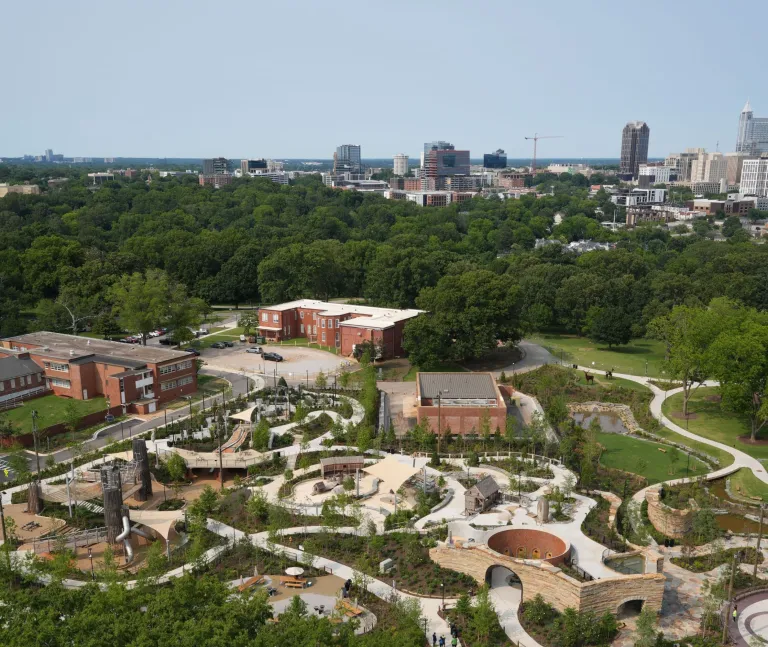
A Park for Everyone
Dix Park is Raleigh’s premier urban park — a 308-acre destination where natural beauty, deep-rooted history, and boundless potential come together. Located on a sweeping landscape of rolling meadows, dramatic hills, old-growth oaks, and historic architecture, the park offers an immersive experience in nature and culture right in the heart of the city.
New features like a world-class adventure playground and restored historic buildings — now home to a visitor center, event venue and concessions — add fresh energy to this unique park setting. Whether you're gathering with friends, playing with family, or simply taking in the skyline views, Dix Park is a safe, inclusive space for everyone to enjoy.
Where is Dix Park?
Dix Park is located in Raleigh, North Carolina, just minutes from the vibrant city center.
You’ll find us:
- Within walking distance of Downtown Raleigh, Historic Boylan Heights and Pullen Park
- Next door to the State Farmers Market NC State University's Centennial Campus
- Connected to the Capital Area Greenway System by the Rocky Branch Trail
Why is Dix Park special?
- It’s one of the largest urban parks in North Carolina
- Home to the Southeast’s most incredible adventure playground
- Offers iconic, postcard-worthy views of the Raleigh skyline
- Represents a remarkable beginning, made possible by passionate community support and investment — with much more to come as the vision continues to unfold.
Dix Park is more than a park — it’s a shared space for joy, connection, and belonging. Come see what makes it one of Raleigh’s most inspiring places.
